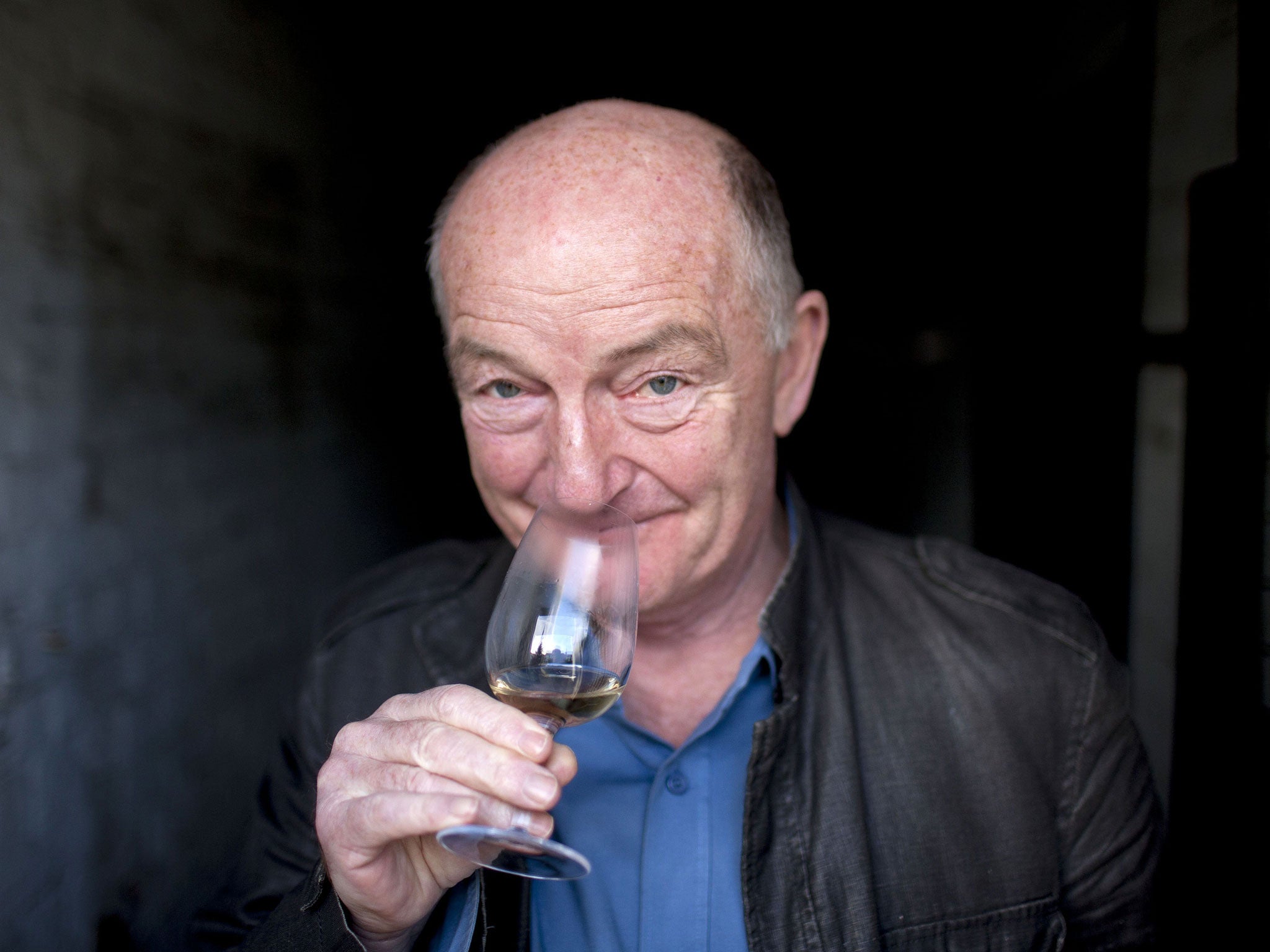Oz Clarke takes the reader on a personal romp in The History of Wine in 100 Bottles
Clarke demonstrates that a discerning palate doesn't have to mean a wine snob

A communicator who's spent a lifetime making wine entertaining, Oz Clarke takes us on an unapologetically personal romp through many of the most significant moments in wine in The History of Wine in 100 Bottles (£20, Pavilion). Every bottle drained tells stories of "the politics, the science, the empire-building and the wars, the lucky mistakes, the brilliant guesses, the leaps in the dark and the human frailties that have created our world of wine".
It's important to celebrate the first white zinfandel of liebfraumilch or bag-in-box, he says, because "the eccentric, the bombastic and the mundane" have all in their own way contributed to enriching our culture. Few critics manage so well that tightrope between heartfelt praise of the popular and derision of the lowest common denominator. In communicating his genuine enjoyment of Gallo's Heart burgundy or Montana's Marlborough sauvignon blanc, Clarke demonstrates that a discerning palate doesn't have to mean a wine snob.
Most expensive bottles of wine in the world
Show all 10Flavour and history are conjoined on his time travels. After a wham-bam tour of the clay pots of Georgia and the amphorae of the Egyptian and Roman empires, Oz bar-crawls Pompeii's "rowdy drinking joints… so well-preserved that you can taste the wine, smell the food and hear the gossip even now". We learn how monks kept "the flickering flame of culture alive in the silent halls of Europe's monasteries"; how England's Christopher Merret produced fizz 30 years before Dom Pérignon is supposed to have worked out how to make wine sparkle. We relive Napoleon's obsession with the Cape's sweet constantia and discover how hock got its name from Queen Victoria and Albert's visit to Hochheim in 1845.
Clarke contrasts the destructive influences of Prohibition in America, Göring's greedy appropriation of the finest French wines, and the wine fraudster Rudy Kurniawan with the figures whose achievements have enhanced our appreciation of wine. These include Louis Pasteur; Emile Peynaud, who modernised Bordeaux; Max Schubert, who laid the foundations of Australian fine wine; Robert Mondavi, the catalyst behind the rebirth of Napa; and the American super-critic Robert Parker.
We breeze though modern trends: the new era of Bordeaux; the global domination of cabernet sauvignon; the flying winemakers who "introduced the future to places stuck in the past"; the English sparkling wine revolution; and accidental phenomena such as beaujolais nouveau and California blush. Never short of an opinion, Clarke also goes on an occasional mini-rant, directing his ire at Champagne's bullying tendency, the ayatollahs of natural wine, and the negative side of Parker's influence. A hundred bottles more, please, Oz.
Subscribe to Independent Premium to bookmark this article
Want to bookmark your favourite articles and stories to read or reference later? Start your Independent Premium subscription today.

Join our commenting forum
Join thought-provoking conversations, follow other Independent readers and see their replies